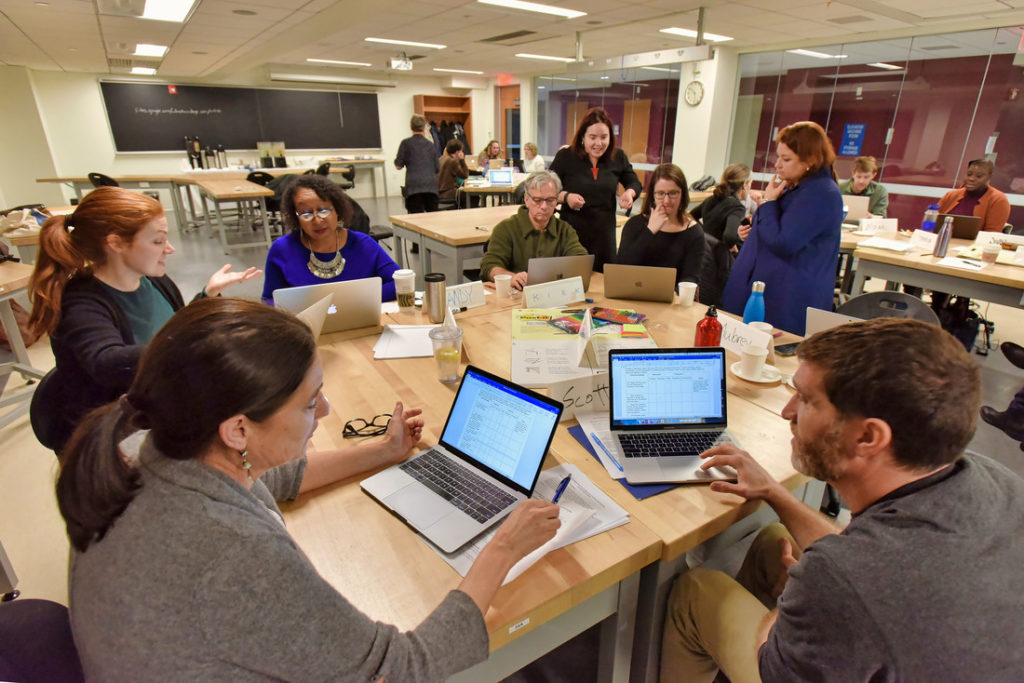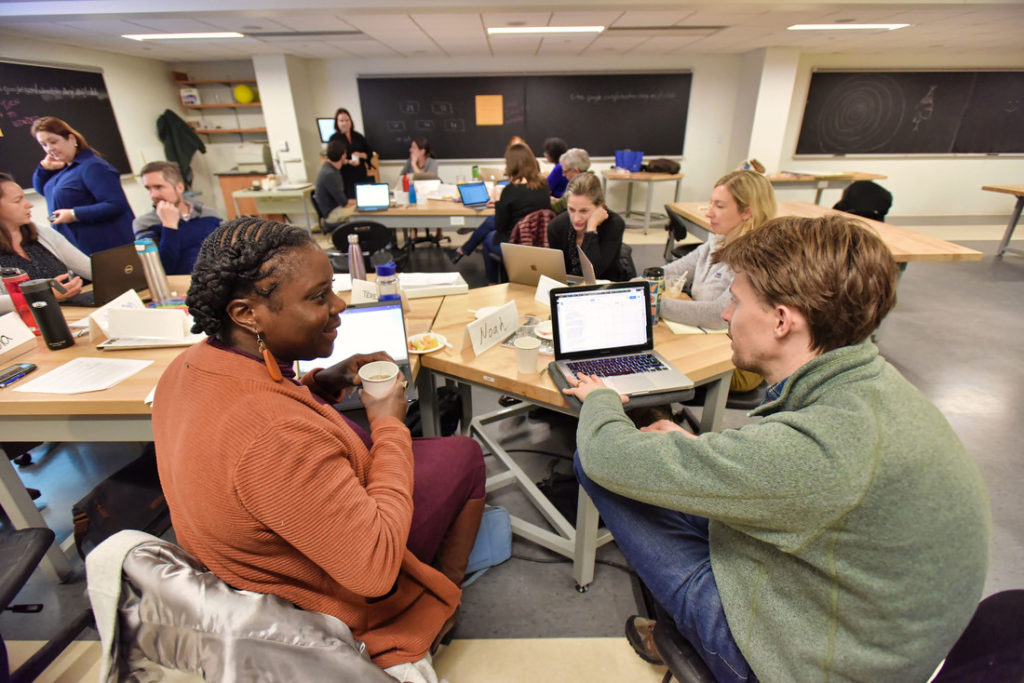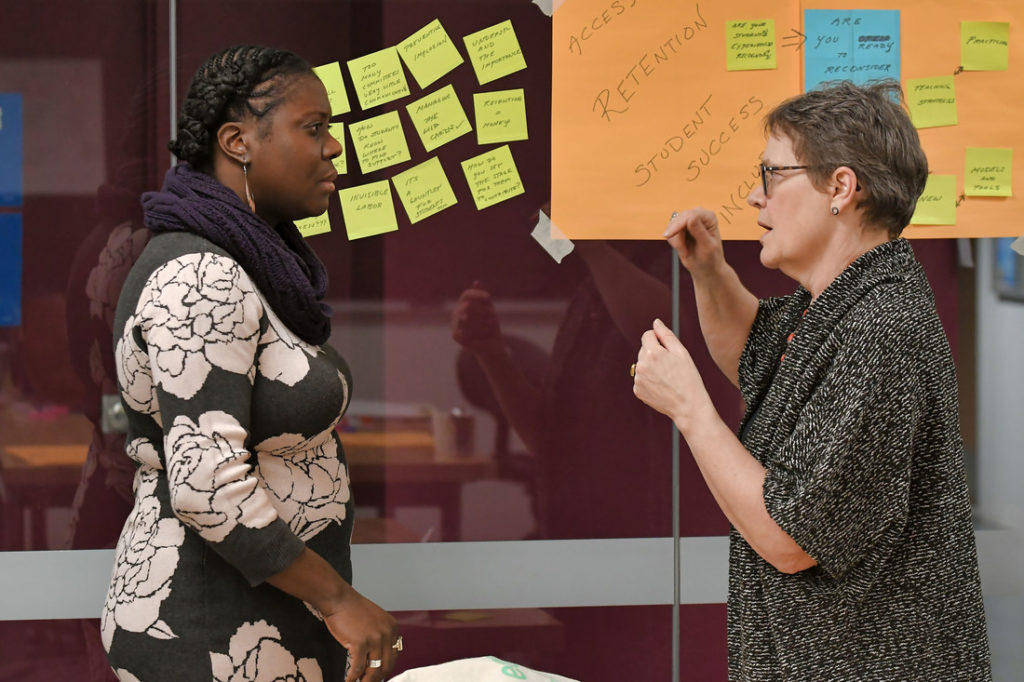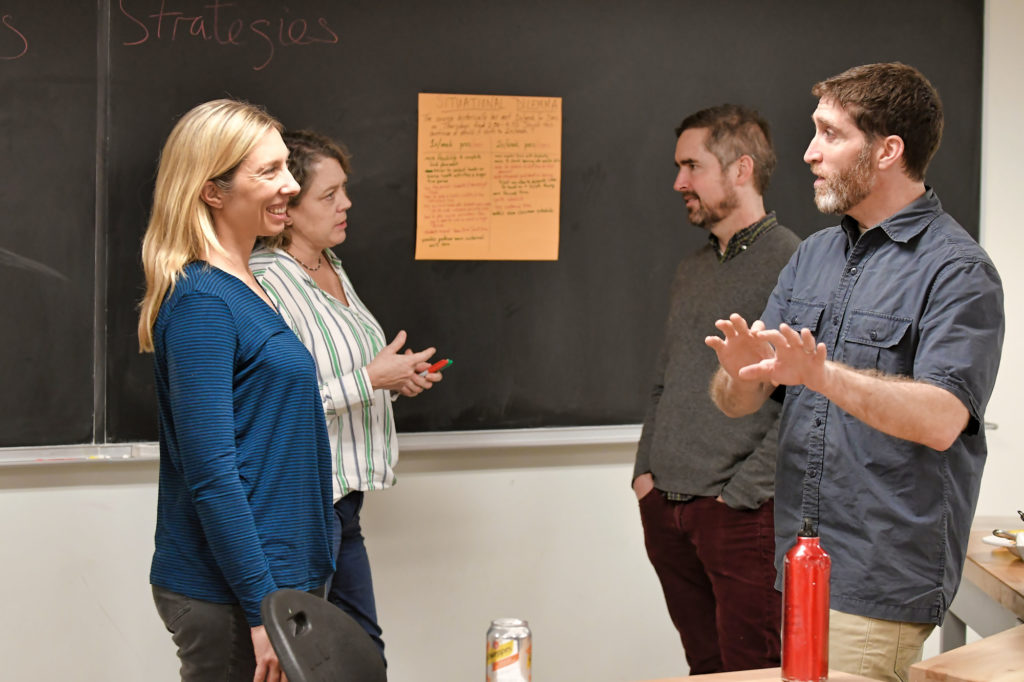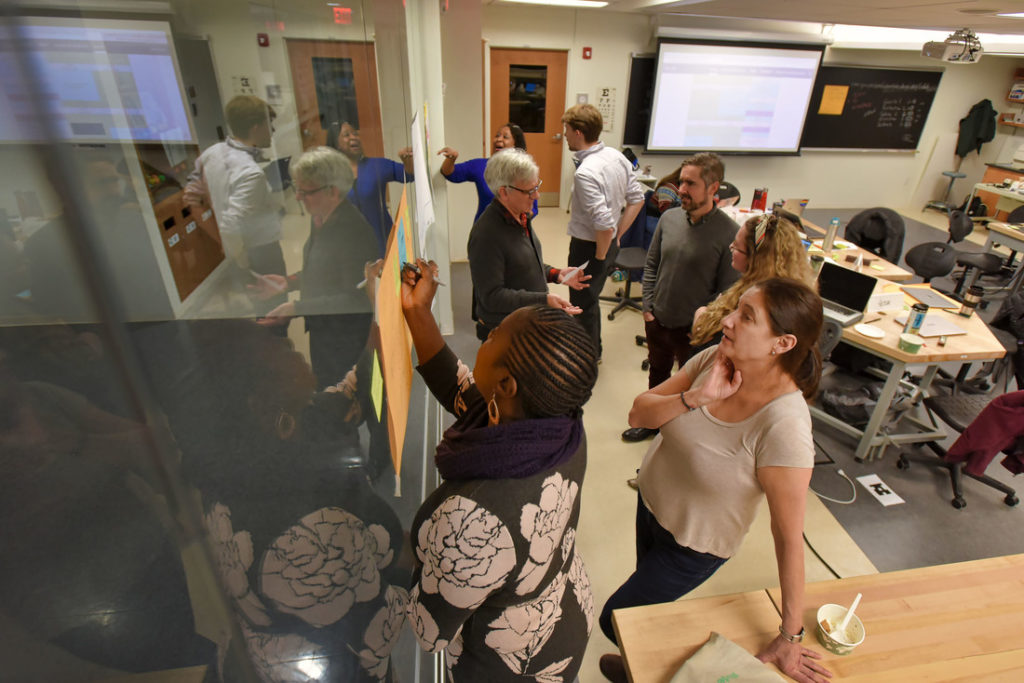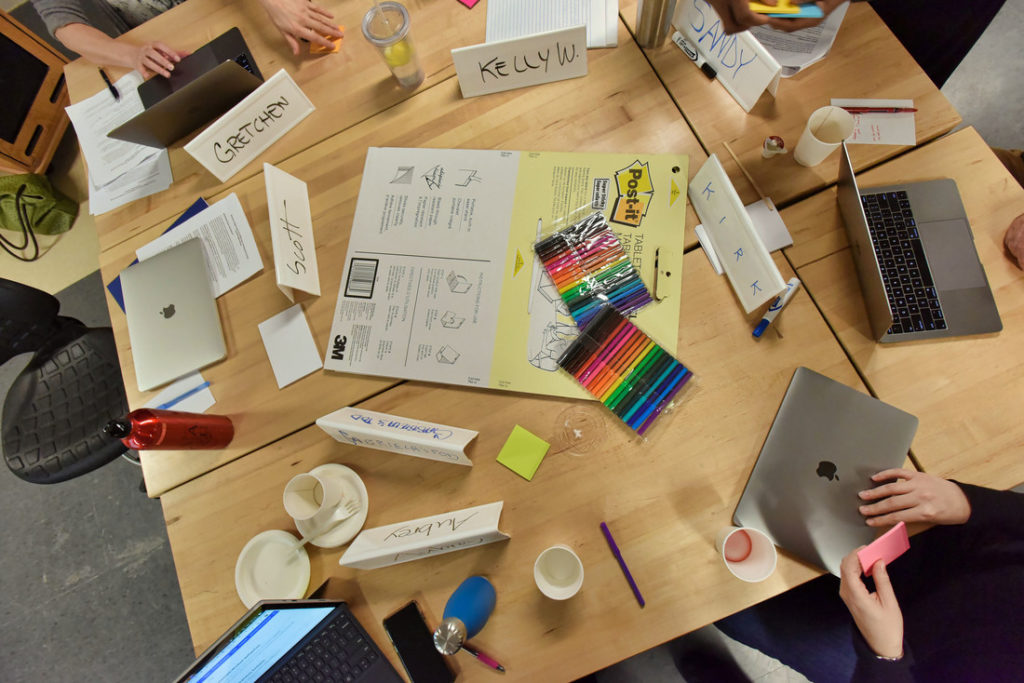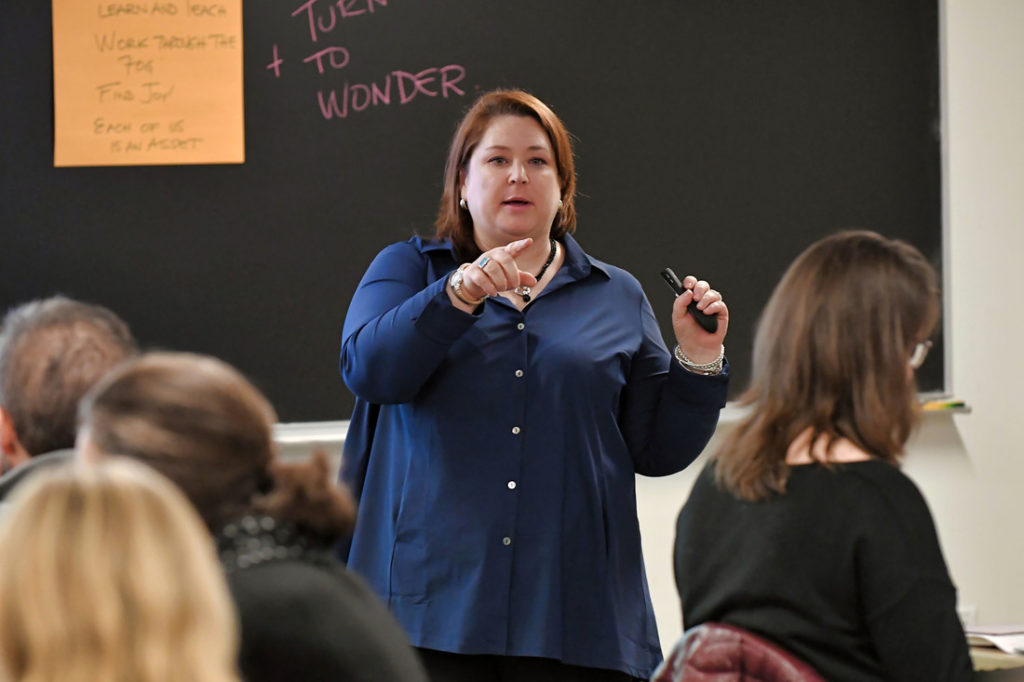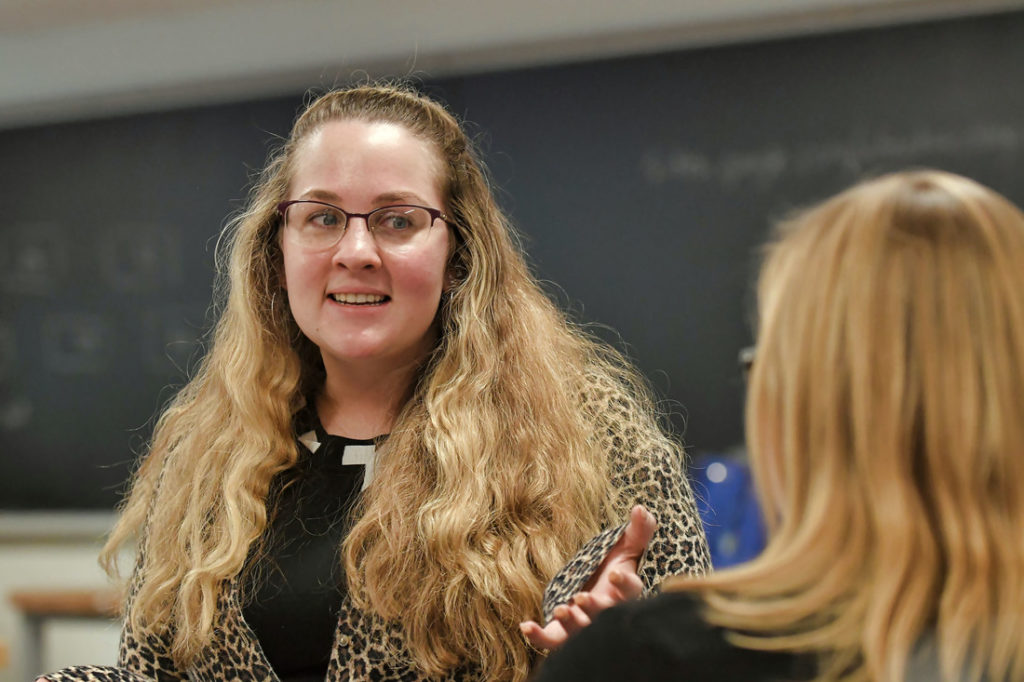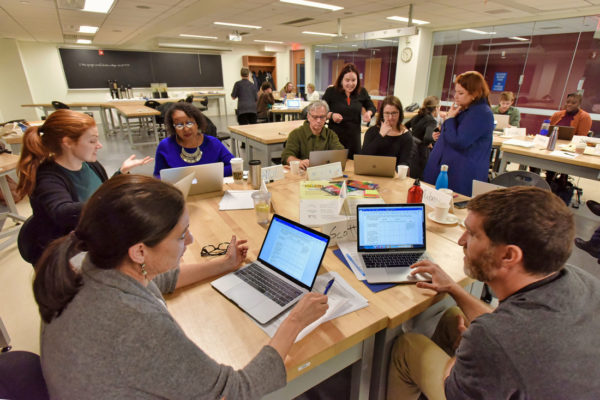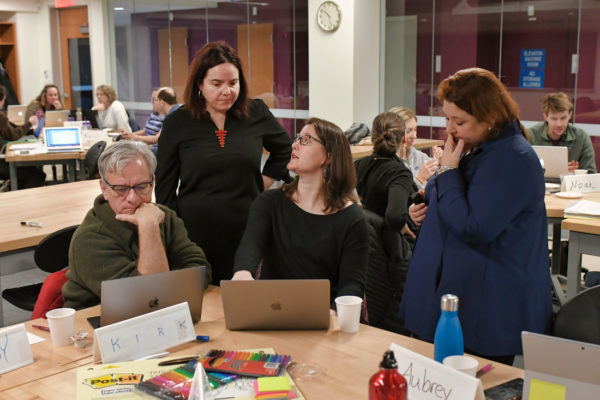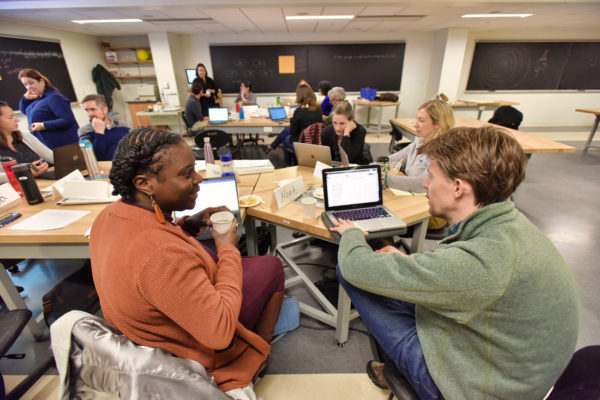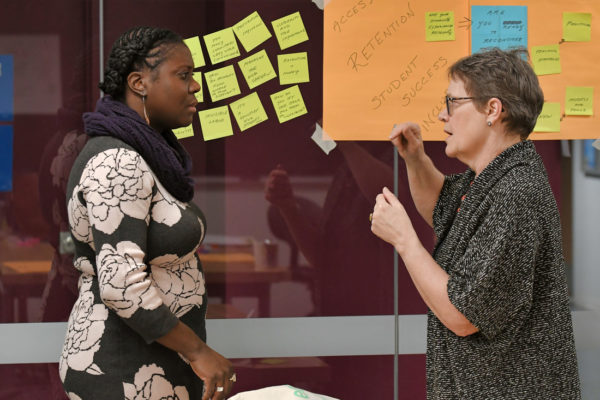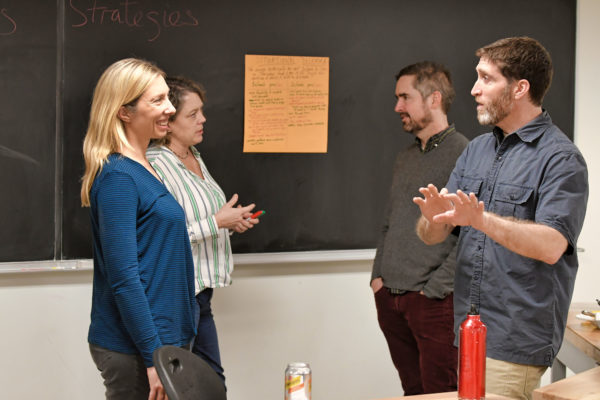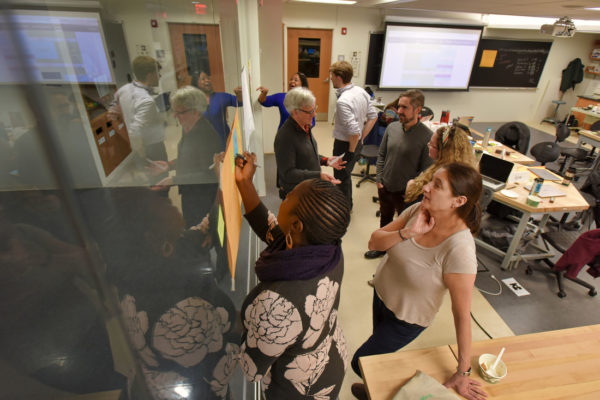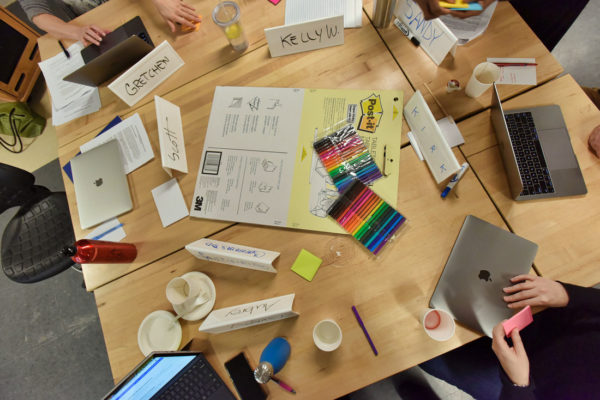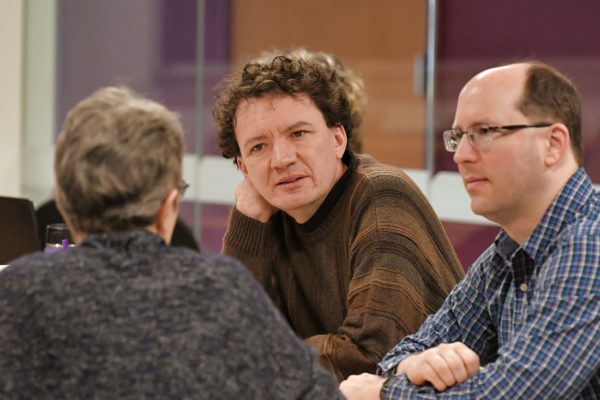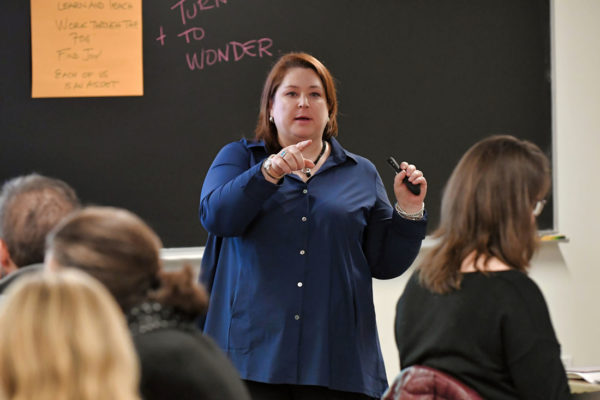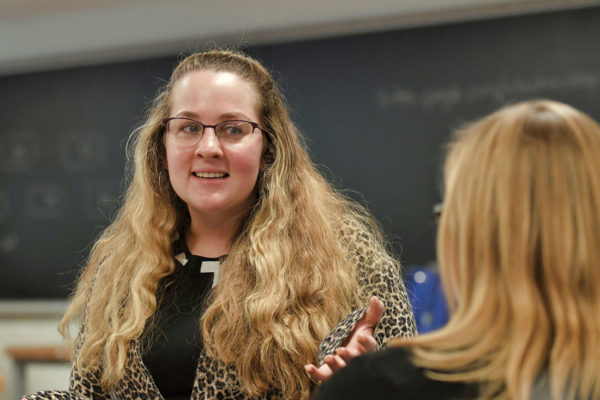Exploring learning
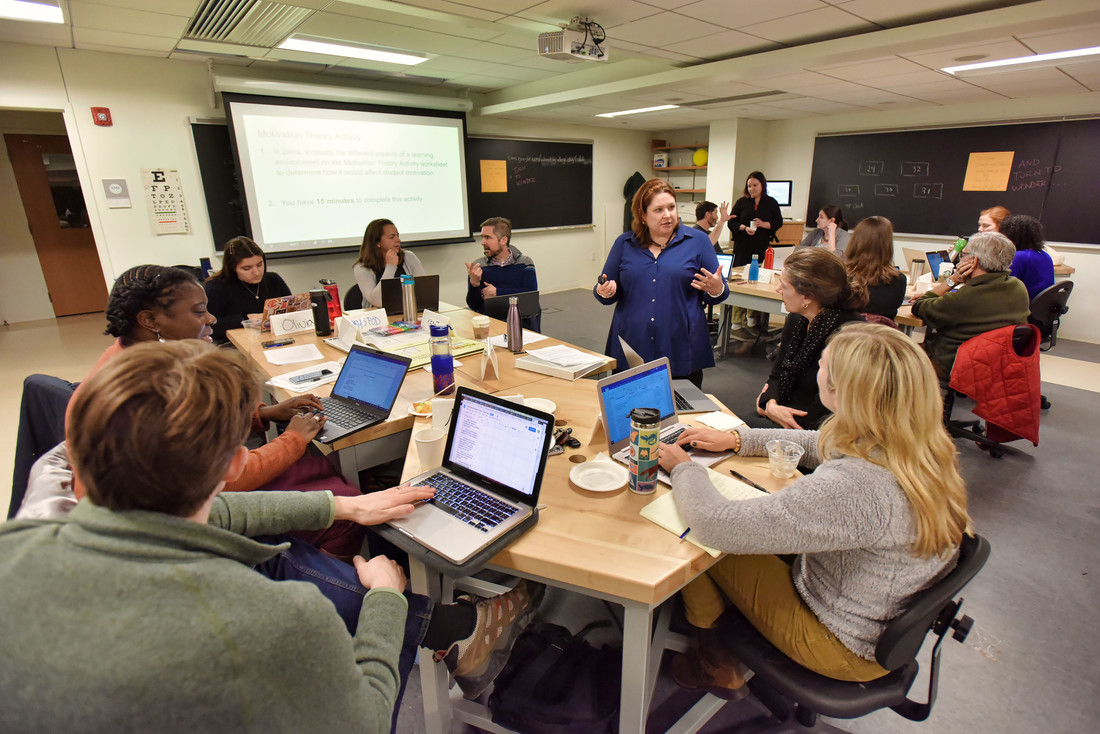
Faculty, staff participate in CoLAB Design Institute
Before the start of the spring semester, faculty and staff members were already in the classroom deeply engaged in coursework—this time as students themselves.
As participants of the first CoLAB Design Institute, presented by the Wheaton College Center for Collaborative Teaching and Learning (CCTL), they were studying innovative approaches to creating inviting and inclusive learning experiences that lead to the most successful outcomes and lifelong impacts for students.
Guided by CCTL co-directors, Professor of English Claire Buck, Professor of Anthropology M. Gabriela Torres and Humanities Liaison Cary Gouldin, the intensive institute took place Wednesday, January 15, through Friday, January 17. Olivia Moura ’22, an English and education double major who is a CCTL assistant, served as a CoLAB program observer.
The institute required plenty of reading assignments as preparation beforehand as well as homework after each daylong session, putting faculty and staff in the shoes of students as they had theoretical discussions and worked through practical hands-on exercises.
The goal of the institute was to provide an opportunity to learn about structured approaches to designing educational materials and experiences. Participants explored together how research in the learning sciences can help reshape an existing course, training or instructional unit, program, organized field experience, or aid in the design of a new project.
That involved exploring how to take an unconventional “backwards” approach to designing courses and other experiences, focusing on the desired outcome for the student learning experience and then working back toward developing the content.
“Learning to see the content we teach through students’ eyes is a truly transformative experience for any educator,” Buck said.
The CCTL, which officially opened in January 2019, aims to build on the college’s holistic approach to education, helping to grow a rigorous and culturally diverse learning environment to promote student success. The CoLAB aims to support faculty and staff in using scholarship on teaching and learning.
The CoLAB’s institute was intentional in its selection of participants, who applied and described what they wanted to design or tweak as part of the application process. There were 18 participants, with a mix of nine faculty and nine staff members.
In Room 1343 of the Mars Center for Science and Technology, faculty and staff members were placed in three mixed groups at tables, with each of the CCTL co-directors serving as a facilitator and participant in each of the groupings. The set-up provided an opportunity for busy colleagues to slow down for meaningful interaction and a conversational intimacy.
“We were excited to develop a ‘backwards’ design institute for crafting educational experiences that took seriously the idea that good teaching is inclusive teaching,” said Torres, CCTL co-director.
“Designed as a hands-on institute, we learned together and workshopped our assignments, syllabi and the core intentions behind the experiences we envision for our students. It was inspiring to see a group of faculty and staff working together over a three-day period, working with care to think about the learning experiences our college offers its students,” Torres said.
Participants had a variety of plans they explored during the institute. Some sought to create new full-semester courses or tweak current courses, while others focused on designing short workshops.
“Collaboration is at the core of both the CCTL and the CoLAB. The participants really embraced that aspect,” Gouldin said. “We invited them to join us as both teachers and learners throughout the institute and they jumped in with both feet and it made the experience powerful and rewarding for all of us.”
Professor of Geology Geoffrey Collins participated in the institute because he wanted to re-examine a class that he has been teaching for awhile. “I knew that over the years the course had accumulated some hidden assumptions and other unknown barnacles,” Collins said.
“What I found most valuable during the workshop was to work on the backwards design, systematically going from what habits of mind students still retain from the class five years later, back through the course goals and objectives, and then down into the activities we do in class. It was this integrated view that helped me see why some of the current class activities work well, and why others need to be reimagined,” he said.
Assistant Professor of Education Sara Donaldson, who joined Wheaton as a new tenured-track faculty member during the fall semester, said she chose to participate in the institute because she, too, has a course she wants to redesign and was looking for some support in structuring the process for approaching the work.
“As a new faculty member at Wheaton, I was also looking for an opportunity to collaborate with other staff and faculty around designing high-quality learning experiences in different content areas and to just have an opportunity to get to know more people on campus and to learn more about what is going on in different departments,” Donaldson said.
“One of my biggest takeaways was the importance of carefully considering situational factors, including classroom set-up and scheduling when designing learning,” she said. “Those were elements I hadn’t really considered before, but our discussions during the institute highlighted the potential impact they can have on the types of learning experiences that will be most effective.”
Although the design institute has ended, participants are continuing to work on what they began in January. The CCTL co-directors plan to continue to serve as consultants for participants and are already working on another design institute to be offered in May.
“I am so excited that CCTL has been launched,” said Shaya Gregory Poku, a CoLAB participant and the dean for Equity, Social Justice and Community Impact.

